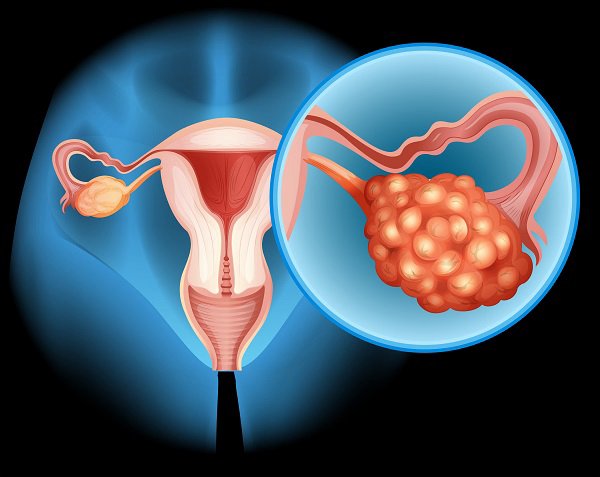Fertility issues affect many men, and while they are often considered a female concern, about 40-50% of all infertility cases involve male factors. Sperm quality, count, and motility play a critical role in male fertility. Fortunately, there are several scientifically backed methods to improve fertility and increase the chances of conception. In this article, we will explore some of the most effective ways to boost male fertility, from lifestyle changes to supplements, ensuring that you’re well-informed and prepared to take control of your reproductive health.
Understanding Male Fertility

Male fertility primarily revolves around sperm quality and quantity. To conceive, a man must produce healthy sperm that are motile enough to reach and fertilize the egg. The three main factors that affect male fertility are:
- Sperm Count: The number of sperm in a given ejaculation. A count of fewer than 15 million sperm per milliliter is considered low.
- Sperm Motility: The ability of sperm to swim toward the egg. Poor motility reduces the chances of successful fertilization.
- Sperm Morphology: The shape and structure of sperm, which affects their ability to penetrate the egg.
1. Optimize Your Diet for Better Sperm Health
A balanced diet rich in specific nutrients is one of the most effective ways to increase fertility. Certain vitamins and minerals have been shown to improve sperm quality, count, and motility.
- Zinc: Zinc is one of the most important nutrients for male fertility. It helps in the production of testosterone and healthy sperm. Foods rich in zinc include oysters, beef, chicken, and nuts.
- Antioxidants (Vitamin C and E): Antioxidants help protect sperm from oxidative stress, which can damage sperm DNA and reduce fertility. Vitamin C-rich foods include citrus fruits, strawberries, and bell peppers, while vitamin E can be found in almonds, sunflower seeds, and spinach.
- Folic Acid: Folic acid is essential for healthy sperm production. A diet rich in leafy greens, beans, and fortified cereals can help meet your folic acid needs.
- Omega-3 Fatty Acids: Omega-3s, found in fatty fish like salmon and walnuts, improve sperm count and motility.
- L-Arginine: An amino acid that helps improve sperm production and quality by increasing blood flow to the reproductive organs.
Eating a nutrient-dense diet not only supports reproductive health but also improves overall wellness.
2. Maintain a Healthy Weight
Weight plays a significant role in male fertility. Studies show that being either underweight or overweight can negatively affect sperm production. Excess body fat, especially around the abdomen, can lead to hormonal imbalances that lower testosterone levels and impair sperm production. On the other hand, being underweight can cause a reduction in sperm count.
To maintain a healthy weight, incorporate regular physical activity and eat a balanced diet. Both cardio and strength training exercises are beneficial for maintaining hormone balance and improving sperm health. However, it is important to avoid excessive exercise, as it can lower testosterone levels and negatively impact fertility.
3. Minimize Stress and Practice Relaxation Techniques
Chronic stress has been shown to reduce sperm quality and testosterone levels. Stress triggers the release of cortisol, a hormone that can interfere with the production of testosterone. In the long run, this can lead to reduced libido, erectile dysfunction, and impaired fertility.
Incorporating relaxation techniques such as mindfulness, yoga, and meditation can help reduce stress levels and protect fertility. Engaging in regular hobbies, spending time outdoors, and maintaining a work-life balance are also effective ways to manage stress and support reproductive health.
4. Get Regular Physical Activity
Exercise not only helps maintain a healthy weight but also boosts testosterone levels, which is essential for sperm production. Moderate-intensity exercises such as swimming, cycling, and strength training have been shown to enhance sperm quality and improve overall reproductive health.
However, it’s important to avoid overtraining, as excessive exercise can lead to decreased testosterone levels and negatively affect sperm production. Aim for about 30 minutes of moderate physical activity most days of the week to maintain optimal fertility without overexertion.
5. Avoid Smoking and Limit Alcohol Consumption
Both smoking and excessive alcohol consumption are harmful to male fertility. Smoking damages sperm DNA, reduces sperm count, and impairs motility. Research has shown that men who smoke have a significantly lower chance of conception compared to non-smokers.
Alcohol, when consumed in excess, can lead to a reduction in testosterone levels and impair sperm production. It’s recommended to limit alcohol consumption to moderate levels—no more than two drinks per day—to protect fertility.
6. Stay Hydrated and Keep Cool
Staying hydrated is important for maintaining the production and motility of sperm. Semen is mostly made of water, and dehydration can lead to reduced semen volume and lower sperm quality. Aim to drink at least 8-10 glasses of water per day to stay properly hydrated.
Additionally, keeping the testicles cool is essential for optimal sperm production. The testes are located outside the body to maintain a temperature slightly cooler than core body temperature. Prolonged exposure to heat, such as from hot tubs, saunas, or tight-fitting underwear, can impair sperm production. Wear loose-fitting clothing, avoid hot baths, and take breaks from activities that expose your testicles to high temperatures.
7. Consider Fertility-Boosting Supplements
In addition to a healthy diet, certain supplements can enhance sperm production and improve fertility. Here are some scientifically backed supplements to consider:
- Zinc: Known for its role in boosting testosterone and improving sperm count.
- Coenzyme Q10 (CoQ10): An antioxidant that enhances sperm motility and quality.
- D-Aspartic Acid: An amino acid that increases testosterone levels and sperm production.
- Ashwagandha: A herbal supplement that reduces stress and improves sperm quality and testosterone levels.
- Fenugreek: Shown to improve testosterone levels and sexual function.
It’s essential to consult with a healthcare provider before starting any supplements, as individual needs and responses to supplements may vary.
8. Regular Medical Checkups
Regular medical checkups play a vital role in ensuring optimal reproductive health. Conditions such as hormonal imbalances, varicocele (enlarged veins in the scrotum), or infections can impair sperm production and fertility. Routine checkups allow for early detection and treatment of any underlying issues.
Men should also consider getting tested for sexually transmitted infections (STIs), as untreated infections can cause scarring in the reproductive tract, leading to reduced fertility.
9. Practice Safe Sex
Unprotected sex can lead to STIs, which can negatively impact sperm health and fertility. Chlamydia and gonorrhea, in particular, are known to cause infertility if left untreated. Using condoms during sexual activity and maintaining open communication with sexual partners about sexual health are crucial for protecting fertility.
If you suspect that you have contracted an STI, seek prompt medical treatment to prevent long-term damage to your reproductive system.
10. Monitor Hormone Levels
Testosterone plays a key role in sperm production, and maintaining proper hormone levels is essential for fertility. If you are experiencing symptoms such as reduced libido, fatigue, or difficulty conceiving, it’s important to have your hormone levels checked by a healthcare provider. Hormonal imbalances can be treated with lifestyle changes, supplements, or medical interventions to restore fertility.
Conclusion
Boosting male fertility requires a comprehensive approach that involves healthy lifestyle choices, proper nutrition, stress management, and regular medical checkups. By implementing these strategies, men can improve sperm quality, increase their chances of conception, and support overall reproductive health.
For further reading and scientific research on male fertility, check out the following reliable sources:
- Mayo Clinic – Male Fertility Health
- National Institutes of Health – Reproductive Health
- American Urological Association – Male Reproductive Health
These resources provide evidence-based information to help guide men in optimizing their reproductive health and fertility.




